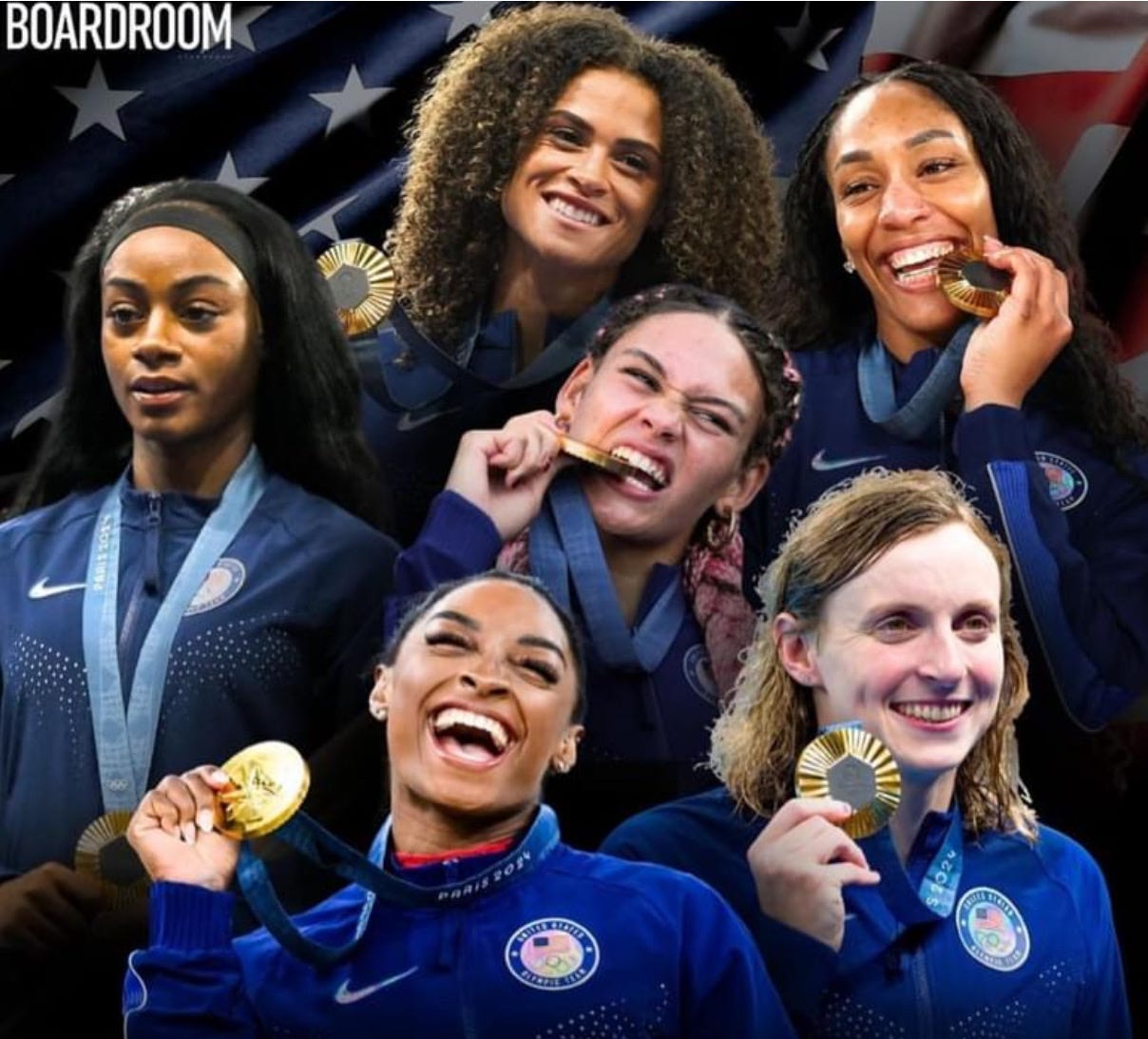Two hundred years. That’s how long women have been fighting for the basic human right of equality. What’s frustrating is, after all that, we’re not there yet. According to the World Economic Forum’s 2022 Global Gender Gap Report, we still have 130 years of hard work to go to reach equality. In a world where women and girls are climbing out of the pits of sexism and stereotypes and fighting back on issues of pay equity, representation, and sexual harassment, the Paris Olympic Games has given us hope and a glimpse of what gender equality looks like.
During the first modern Olympic Games held in Athens, Greece in 1896, women were not allowed to compete. Four years later at the 1900 Paris Olympic Games, the first female athletes were given permission to compete in five events: tennis, sailing, croquet, equestrian, and golf. There were 22 female athletes out of 997 competitors, a paltry 2.2 percent.
At the 2024 Paris Olympic Games, 50 percent of the athletes were female and competing in 151 events, and the US had the most women athletes with 338 participating. What’s more, 42 percent of Olympic coaches were women, doubling what it was 10 years ago. Primetime Olympic athlete coverage was close to equal for men and women, which has historically prioritized male athletes.
This is what gender equality looks like on and off the field.
But there’s work to be done. While more and more girls are participating in sports, they are also dropping out at increasing numbers between the ages of twelve and thirteen—the very time when girls need every ounce of their confidence and empowerment to take hold—to grow into women who know their full value and expect nothing less.
According to the Tucker Center for Research on Girls and Women in Sports at the University of Minnesota, while the overall percentage of women’s teams with women head coaches went up for the ninth year in a row, women continue to hold less than half of head college coaching positions and “there is a near absence of women coaching men.” And while media coverage for women’s sports is at an all-time high, it’s only a measly16 percent.
As The Tucker Center states, “The underrepresentation of women is not the problem, it is the symptom of the problem. The real problem is a culture, both societal and with sport, that does not value or support women.”
According to the International Olympic Committee’s fact sheet, Women in the Olympic Movement: “Sport is one of the most powerful platforms for promoting gender equality and empowering women and girls.” The Paris Olympics is proving this truth and leading the way.




